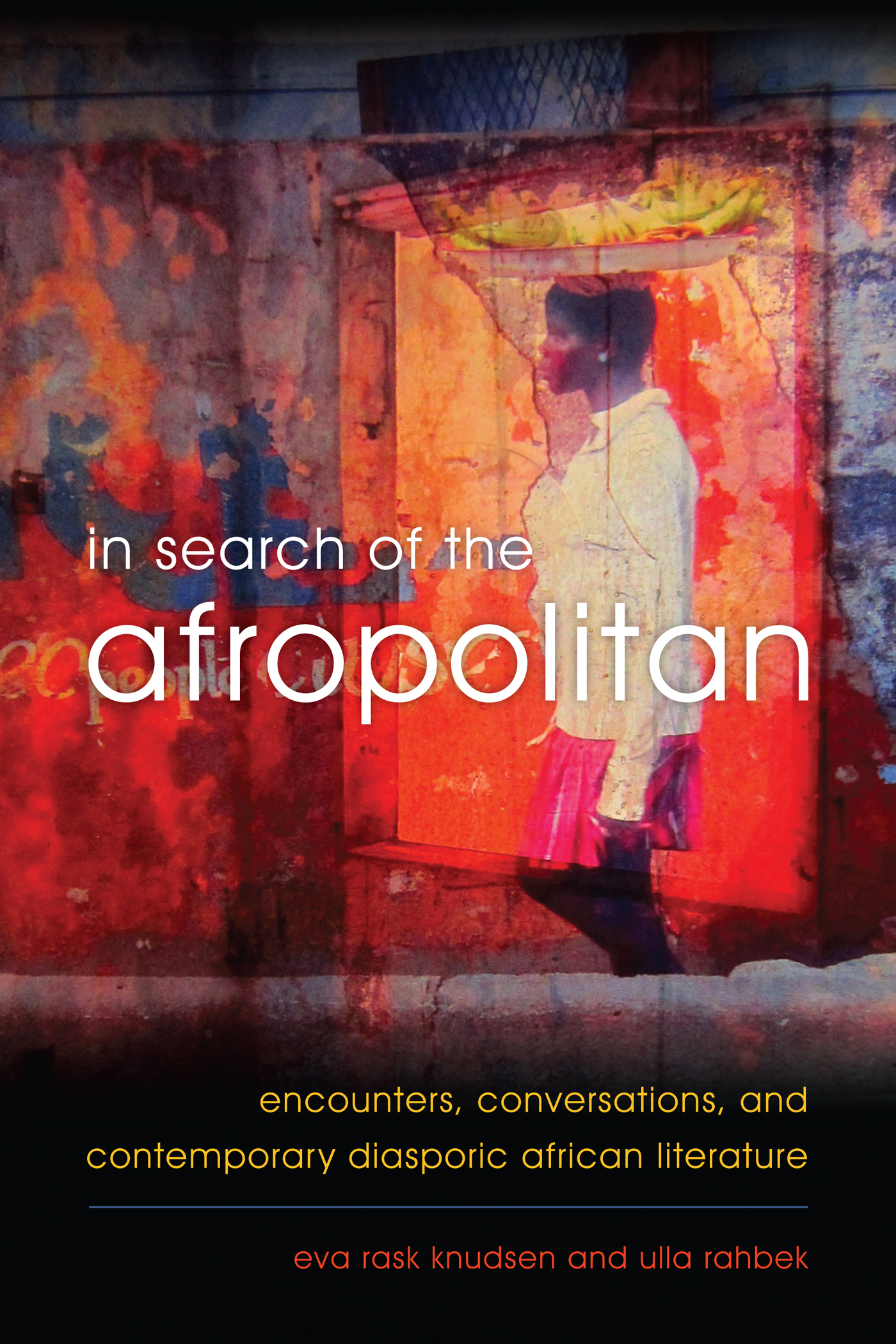In Search of the Afropolitan
In Search of the Afropolitan
Encounters, Conversations, and
Contemporary Diasporic
African Literature
Eva Rask Knudsen and Ulla Rahbek

London New York
Published by Rowman & Littlefield International, Ltd.
Unit A, Whitacre Mews, 26-34 Stannary Street, London SE11 4AB
www.rowmaninternational.com
Rowman & Littlefield International, Ltd. is an affiliate of Rowman & Littlefield
4501 Forbes Boulevard, Suite 200, Lanham, Maryland 20706, USA
With additional offices in Boulder, New York, Toronto (Canada), and London (UK)
www.rowman.com
Copyright 2016 by Eva Rask Knudsen and Ulla Rahbek
All rights reserved. No part of this book may be reproduced in any form or by any electronic or mechanical means, including information storage and retrieval systems, without written permission from the publisher, except by a reviewer who may quote passages in a review.
British Library Cataloguing in Publication Information Available
A catalogue record for this book is available from the British Library
ISBN: HB 978-1-78348-353-2
ISBN: PB 978-1-78348-354-9
Library of Congress Cataloging-in-Publication Data
Names: Knudsen, Eva Rask, author. | Rahbek, Ulla, author.
Title: In search of the Afropolitan : encounters, conversations and contemporary diasporic African literature / Eva Rask Knudsen and Ulla Rahbek.
Description: Lanham : Rowman & Littlefield International, 2016. | Includes bibliographical references and index.
Identifiers: LCCN 2016018984 (print) | LCCN 2016019190 (ebook) | ISBN 9781783483532 (cloth : alk. paper) | ISBN 9781783483549 (pbk. : alk. paper) | ISBN 9781783483556 (Electronic)
Subjects: LCSH: African literature (English)--21st century--History and criticism. | African diaspora in literature. | Africans--Race identity. | Group identity--Africa.
Classification: LCC PR9340.5 .K68 2016 (print) | LCC PR9340.5 (ebook) | DDC 820.996--dc23
LC record available at https://lccn.loc.gov/2016018984
 TM The paper used in this publication meets the minimum requirements of American National Standard for Information Sciences Permanence of Paper for Printed Library Materials, ANSI/NISO Z39.48-1992.
TM The paper used in this publication meets the minimum requirements of American National Standard for Information Sciences Permanence of Paper for Printed Library Materials, ANSI/NISO Z39.48-1992.
Printed in the United States of America
Acknowledgements
In Search of the Afropolitan would never have found its present form without the valuable contributions of writers and critics who kindly shared their thoughts and ideas with us along the way. In particular, we wish to thank Kwame Anthony Appiah, Simon Gikandi, Minna Salami, Sefi Atta, Chika Unigwe, Brian Chikwava, Taiye Selasi, Emma Dabiri, and Asta Busingye Lydersen for stimulating conversations and their encouraging interest in our project.
We are grateful to Mia Andr Cortes for the formidable task of transcribing all the conversations and to Luna Marie Gymoese Berthelsen for invaluable editorial assistance in getting the manuscript ready for submission.
We also thank our bright and enthusiastic students at Copenhagen University for their contributions to our classes on Afropolitan literature.
The Danish Carlsberg Foundation made it possible for us to travel and meet many of the writers and critics whose work we discuss in the book. Our conversations with them are a crucial part of the book, yet without the generous grant from the Foundation, the fieldwork that our project is based on would not have been possible. We thank the Foundation for its support.
Opening
In Search of the Afropolitan
Theres a sense in which cosmopolitanism is the name not of the solution but of the challenge. A citizen of the world: how far can we take that idea? (Appiah 2007: xiii)
As a quick Google search will demonstrate, to be Afropolitan in a global world of increased mobility is currently associated with much hype and accentuated market interest. An ambivalent restlessness is associated with the elusive Afropolitan who is featured as a confident, often spectacularly attractive, worldly, and profoundly itinerant African or person of African descent. The Afropolitan, it seems, is always about to arrive, yet also most likely soon about to leave. To be Afropolitan is arguably an effect of globalisation and late modernity. It is a mobile and decentred position that disavows earlier deeply hegemonic phases of modernity as it calls for a reorientation of ideas about Africa and African culture and identity. In the contemporary moment, the Afropolitan reaps recognition and empowerment from the opportunities that come from the radical changes in patterns of mobility, demography, and cultural and social organisation that globalisation processes have brought about. The Afropolitan, as Taiye Selasi has suggested in her widely disseminated 2005 essay Bye-Bye, Babar (Or: What Is an Afropolitan?), is a twenty-first-century African of the world who belongs to a scattered tribe that has set up camp around the globe (2005). The Afropolitan is rich in cultural complexity, conscious of the history that produced blackness yet refusing to oversimplify as nothing is neatly black or white in a global world (2005). In other words, the Afropolitan will not be pinned down and contained by predetermined ideas about what it means to be African or of African descent. Indeed, Selasi argues, the Afropolitan wants to complicate Africa (2005). Selasis essay opens with an Afropolitan mise-en-scne of beautiful, brown-skinned people at the funky Medicine Bar in London. The women wear enormous afros and are clad in kente cloth worn over low-waisted jeans, the men show off those incredible torsos unique to... African coastlines, and the scene teems with the vibrancy of a London meets Lagos meets Durban meets Dakar hybrid mix (2005). The bar guests belong to a new generation of Africans, Selasi suggests, coming soon or collected already at a law firm/chem lab/jazz lounge near you, and tips her readers that [y]oull know us by our funny blend of London fashion, New York jargon, African ethics, and academic successes (2005). When Selasi popularised the term Afropolitan in her essay, she instantly struck a responsive chord with multitudes of young Africans, especially those of mixed origin, who were attracted to her energising redefinition and authentication of the hybrid African way of being in the world. In the years since 2005, the essay has gone viral on the Internet and it is in fact still a first hit for the search word Afropolitan.
A more persistent Google search, however, will uncover a slippage between the trendy, eye-catching Afropolitan images that first appear on the screen and a significantly less enthusiastic concern that the current hype around everything Afropolitan obscures the continued struggles of most Africans to obtain their fair share of mobility and material or communicational access in the twenty-first-century global world. Selasis essay is, of course, not blind to how disadvantage often shapes African and black lives, but it insists on the need for a positive re-conceptualisation of what it means to be African in the twenty-first century, one that is actively and purposefully shaped by those who live hybrid lives themselves and have often felt sadly deprived by their in-between-cultures existences. For Selasi, to be Afropolitan is to name oneself in an entirely different way that draws on the specific cultural intelligence that comes with multi-local origins and which engenders an agency that comes from within the individual rather than one that may, or may not, be granted from without. Still, many commentators are worried that the politics of power and the concomitant realities of continued inequalities and exclusion are not sufficiently addressed in Afropolitan debates. On her Diaspora Diva blog, Emma Dabiri finds the Afropolitan label too polite, corporate, glossy [as] it reeks of sponsorship and big business with all the attendant limitations (2013). While such a critique specifically calls attention to the market and the media that trade in the Afropolitan as a profitable label, Minna Salami, on the other hand, embraces the fresh energy (3 April 2013) inherent in the Afropolitan position. As she polemically asks on her MsAfropolitan blog: How dare Africans not simply be victims, but also shapers of globalisation and all its inherent contestations? How dare we market our cultures
Next page
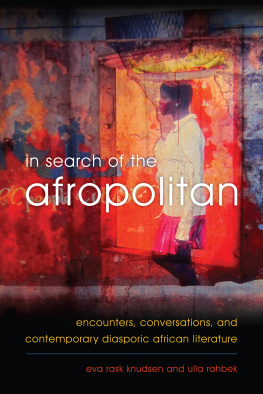


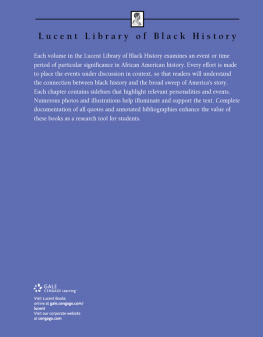
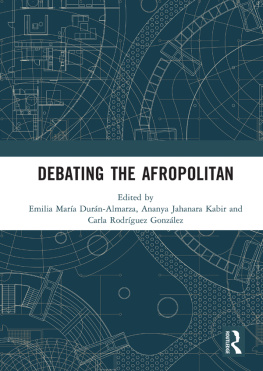
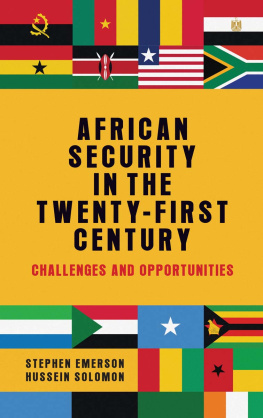
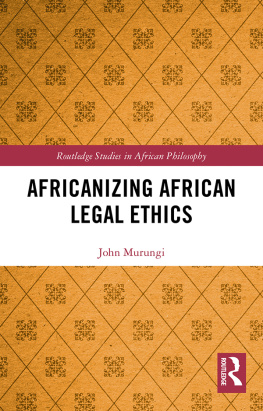
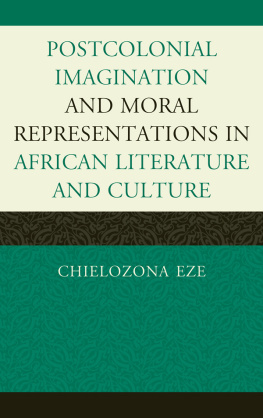
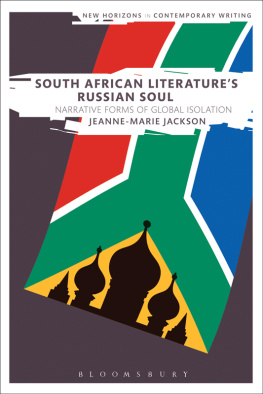
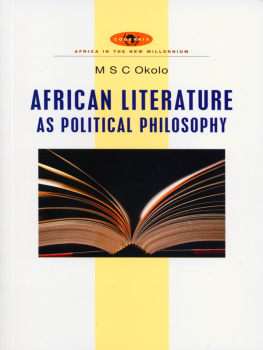


 TM The paper used in this publication meets the minimum requirements of American National Standard for Information Sciences Permanence of Paper for Printed Library Materials, ANSI/NISO Z39.48-1992.
TM The paper used in this publication meets the minimum requirements of American National Standard for Information Sciences Permanence of Paper for Printed Library Materials, ANSI/NISO Z39.48-1992.